
Top 5 Appliance Repairs Every Landlord Should Be Prepared For and How to Handle Them
Owning rental properties comes with a handful of responsibilities. One that ranks high is appliance maintenance and repair. Appliances used daily by tenants tend to wear out. You can’t control that. But understanding common problems gives you a head start. If you’re ever scrambling to find appliance repair in Atlanta, it helps to know what’s likely to break and how to approach fixing it.
Most landlords encounter the same breakdowns repeatedly. These typically involve refrigerators, washers and dryers, ovens, heating and cooling systems, and garbage disposals. Each one has unique repair needs, cost implications, and urgency. Only knowing the basics isn’t enough, though. Successful landlords stay proactive. They inspect regularly, respond fast, and decide wisely on repair versus replacement.
In the sections that follow, we’ll dive into each repair, cover signs to watch for, troubleshooting steps, cost estimates, and tips for living through them with tenants. Think of this as your landlord’s repair playbook.
Refrigerator Malfunctions: Signs, Troubleshooting, and Costs
A cooling failure frustrates tenants. Food spoils fast, and complaints pile up. Refrigerators often break down due to worn compressors, clogged condenser coils, or failed start relays.
Condenser coils gather dust over time. They demand biannual cleaning with a coil brush or vacuum. If cooling remains weak after cleaning, consult a technician. Compressor issues require replacement—costly but necessary. Relays are cheaper and easier for a handyman to fix.
Water leaks also happen. Iced defrost drains or cracked inlet valves frequently cause puddles. Many landlords clear the drain or tighten connections. But valve replacements need a pro.
Ice maker woes? Often caused by a jammed fill tube or frozen water line. Thawing usually resolves it. But burst filters or faulty valves require immediate attention. Costs vary: cleanings might cost $50–$100, part replacements $150–$300, while full compressor replacements may top $500.
Preventive maintenance remains key. Clean coils, change filters, check seals, and ensure ventilation. It goes a long way toward avoiding sudden failures.
Washer and Dryer: Typical Complaints and Swift Fixes
Laundry machines take heavy wear. Tenants often treat them as industrial tools, so breakdowns are frequent. Key issues include drum spin failures, water leaks, and heating malfunctions in dryers.
Drum problems usually stem from worn belts, pulleys, or lid switches. Quicker inspections can reveal loose belts or misaligned drums. Replace small parts early to prevent bigger motor issues.
Leaky washers? They’re frequently due to loose hoses, torn seals, or clogged pumps. A tight hose or new gasket often resolves the issue within $30–$60, while pump replacements may cost $100–$150.
Dryer malfunctions typically involve heating elements, thermal fuses, or vents clogged by lint. Clean vents immediately. If no heat persists, a broken element or blown fuse is likely. Replacement parts cost $50–$150. Keep airflow clear, though—dryer fires are no joke.
Range Voltage or Gas Ignition Failures
Kitchen ranges suffer from burnt coils, ignition issues, erratic heating, or broken control panels. Electric coils degrade slowly; you’ll spot burnt spots or uneven heat. Replacing coils costs about $30–$60 per burner.
Gas ranges might fail to ignite due to clogged burners or malfunctioning ignitors. Clean as needed. For a damaged ignitor, hire a technician—gas lines complicate safety.
Oven heating problems typically require new thermostats, sensors, or control boards. Modern units are expensive to repair, sometimes prompting full replacements. Still, timely fixes are far better than spoiled dinners and mounting tenant frustration.
Regular cleaning, checking seals, and clearing burner ports can extend range life significantly.
HVAC Systems: Seasonal Breakdown Patterns
HVAC systems stand out for serious landlord headaches. Both heating and cooling failures can disrupt tenant comfort quickly.
Air conditioner failures tend to occur during peak heat. Worn compressors, refrigerant leaks, clogged coils, or dirty filters reduce cooling and hike energy bills. Signs include weak airflow, strange sounds, or sump pump leaks due to frozen evaporator coils. Clean filters regularly. But compressor issues or refrigerant leaks demand licensed HVAC pros. Compressor replacement may cost $600–$1200, plus labor.
Winter brings furnace failures. Malfunctioning pilot lights, cracked heat exchangers, broken ignitors, or failing blowers are common problems. Dirty burners reduce efficiency; pilot light issues might be DIY, but heat exchanger cracks or gas leaks require immediate professional attention. Annual inspections and tune-ups prevent many issues.
Landlords should schedule HVAC checks twice a year—before cooling and heating seasons. Inspections optimize safety and efficiency.
Garbage Disposal and Dishwasher Glitches
Kitchen drains host frequent abuse. Garbage disposals jam or stop working when tenants grind fibrous food like corn husks. If disposal hums but doesn’t grind, a jammed blade or faulty motor is likely. A quick reset might help, but breakdowns often require replacement—especially in older units.
Dishwasher issues include blocked spray arms, faulty water pumps, worn seals, and failed heating elements. These can lead to wet dishes, bad smells, leaks, or no dry cycles. A mid-range repair might cost $75–$200; sensor or board replacements can exceed $300. Prompt attention prevents basement flooding and mold growth in cabinets.
Hang drain catchers and educate tenants on what can go down the garbage disposal. It helps avoid common breakdowns.
Repair vs. Replace: Smart Decision Indicators
Repairing everything might seem easy, but that can drain your wallet. Try the 50% rule: if repair costs exceed half the replacement price, replacing is often smarter, especially for older machines.
Typical lifespans:
- Fridge: ~13 years
- Washer: ~10 years
- Dryer: ~13 years
- Dishwasher: ~9 years
- Oven/range: ~15 years
- HVAC: ~15–20 years
As units age near those milestones, repairs may offer diminishing returns. While replacing, consider energy efficiency—newer appliances lower utility bills and improve tenant satisfaction. And a well-maintained replacement avoids the next breakdown cycle.
Keep a maintenance log. Record dates, part replacements, costs, and service providers. This helps establish when replacements are due and improves ROI.
Planning Ahead: Budgeting and Tenant Communication
Proactive landlords perform biannual inspections and schedule maintenance ahead of seasons. They track signs of wear, set aside repair funds, and educate tenants on operation.
Have emergency contacts before breakdowns. A trusted HVAC, plumbing, and appliance technician ensures speedy repairs. Communicate clearly with tenants about timelines and expectations. Temporary units during repairs go a long way in retaining satisfaction.
The result? Less stress, fewer tantrums, fewer broken-down fridges at 2 a.m.
Ensuring Tenant Peace: Swift Reactions and Professionalism
Tenant retention heavily depends on fast, reliable service. When appliances break, owners who respond quickly and communicate clearly earn trust and good property reviews. On the flip side, slow or half-done repairs prompt complaints and vacancies.
Always follow through. Complete documentation, open communication, and keeping tenants comfortable build long-term goodwill. Positive experience leads to longer leases, fewer hassles, and even rent stability.
Landlords juggle many roles—technician, accountant, mediator. But appliance repair doesn’t need to feel overwhelming. With awareness, proper planning, and proactive maintenance, you can tackle the top five breakdowns with confidence.
Refrigerators, laundry machines, ranges, HVAC units, and kitchen disposals are bound to need attention. But when you stay alert, respond fast, and plan smart, you minimize disruptions and maximize tenant happiness. Effective appliance management means happier tenants, smoother cash flow, and long-term success.
When urgent situations arise, knowing where to repair appliance in the Dunwoody area gives landlords peace of mind.

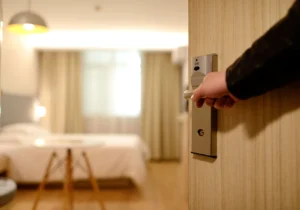
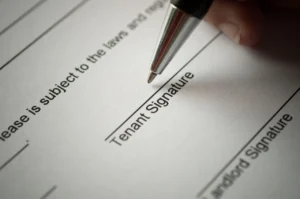


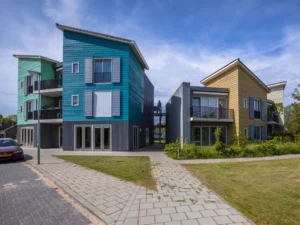
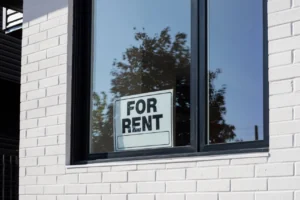
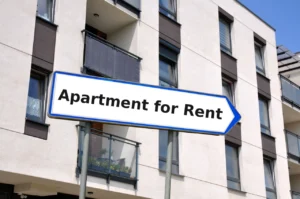





 Accessibility
Accessibility